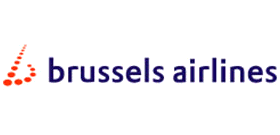 Brussels Airlines Expands African Reach with New Kilimanjaro Route and Network Upgrades
Brussels Airlines Expands African Reach with New Kilimanjaro Route and Network Upgrades
Brussels Airlines is set to make a significant mark on the African aviation landscape with the launch of a new direct service to Kilimanjaro International Airport in Tanzania, commencing June 3, 2026. This move not only strengthens the airline’s commitment to the continent but also opens up fresh opportunities for the region’s tourism and business sectors. The new route will operate twice weekly, on Wednesdays and Saturdays, utilizing the spacious Airbus A330-300 configured with 288 seats across Business Class, Premium Economy, and Economy cabins.
Return fares for this highly anticipated service start from 519 euros, making it an accessible option for both leisure and business travelers looking to explore one of East Africa’s most iconic destinations. With this addition, Brussels Airlines’ sub-Saharan African network will expand to 18 destinations, reinforcing its position as a key player in connecting Europe with Africa’s vibrant markets and natural wonders.
Strategic Growth in East Africa
The introduction of Kilimanjaro as the airline’s fifth East African destination—joining Entebbe (Uganda), Kigali (Rwanda), Bujumbura (Burundi), and Nairobi (Kenya)—is a strategic move that enhances connectivity across the region. Kilimanjaro serves as the perfect gateway not only to the world-renowned Mount Kilimanjaro, Africa’s highest peak, but also to the Serengeti National Park and the Ngorongoro Conservation Area, both recognized as UNESCO World Heritage sites. These attractions are magnets for international tourists and adventure seekers, and the new route is poised to boost arrivals and economic activity in northern Tanzania.
For Africa’s travel sector, this development signals a growing recognition of the continent’s diverse tourism offerings and the increasing demand for direct, reliable air links between Europe and East Africa. The enhanced accessibility to Kilimanjaro is expected to stimulate not only leisure travel but also business, conference, and incentive travel, as well as foster deeper trade ties between the regions.
Network Enhancements Across Africa and Europe
While the Kilimanjaro launch is the headline act for Brussels Airlines’ Summer 2026 schedule, the carrier is also rolling out several other network improvements. On the long-haul front, Freetown in Sierra Leone will see an increase in service, moving from five to six weekly flights with the addition of a Thursday departure. This capacity boost reflects the airline’s confidence in the West African market and its ongoing commitment to providing flexible travel options for both business and diaspora communities.
On the short and medium-haul side, Brussels Airlines is ramping up frequencies to popular European destinations. Spain and Portugal will benefit from 17 additional flights per week, distributed across key cities such as Barcelona, Malaga, Alicante, and Oporto. Northern and Central Europe are also in focus, with Copenhagen gaining five extra weekly flights, Prague four, and Budapest two. These enhancements are designed to meet rising demand during the busy summer season and to offer greater flexibility for travelers connecting through Brussels to Africa and beyond.
Implications for Africa’s Travel Industry
The expansion of Brussels Airlines’ African network is a clear signal of the continent’s growing importance in global aviation. For African travel professionals, the new Kilimanjaro service represents a valuable opportunity to develop innovative packages that combine adventure, culture, and wildlife experiences. The direct link to Brussels also facilitates smoother connections to the rest of Europe and North America, making it easier for African destinations to attract visitors from a wider range of source markets.
Moreover, the increased capacity to Freetown and the enhanced European network create new possibilities for multi-destination itineraries, business travel, and diaspora engagement. As competition intensifies and traveler expectations evolve, African operators will need to leverage these expanded air links to offer seamless, value-added experiences that cater to both international and intra-African travelers.
Looking Ahead: Opportunities and Challenges
The addition of Kilimanjaro to Brussels Airlines’ route map is more than just a new flight—it’s a catalyst for broader change in the region’s travel ecosystem. As infrastructure improves and air connectivity deepens, destinations like Tanzania stand to benefit from increased visitor numbers, higher tourism revenues, and greater international visibility. However, this growth also brings challenges, including the need for sustainable tourism practices, investment in hospitality infrastructure, and the development of skilled human resources to meet rising service standards.
For Africa’s travel sector, the message is clear: the future belongs to those who can adapt quickly, forge strong partnerships, and anticipate the evolving needs of a global clientele. The Kilimanjaro launch is a timely reminder that the continent’s natural wonders and cultural riches are more accessible than ever—and that the next wave of growth will be driven by those who seize the opportunities presented by enhanced air connectivity and a dynamic, competitive marketplace.
As Brussels Airlines prepares to welcome its first passengers to Kilimanjaro in June 2026, the African travel industry is poised for a new era of expansion, innovation, and collaboration—one that promises to reshape the way the world experiences the continent’s extraordinary destinations.
